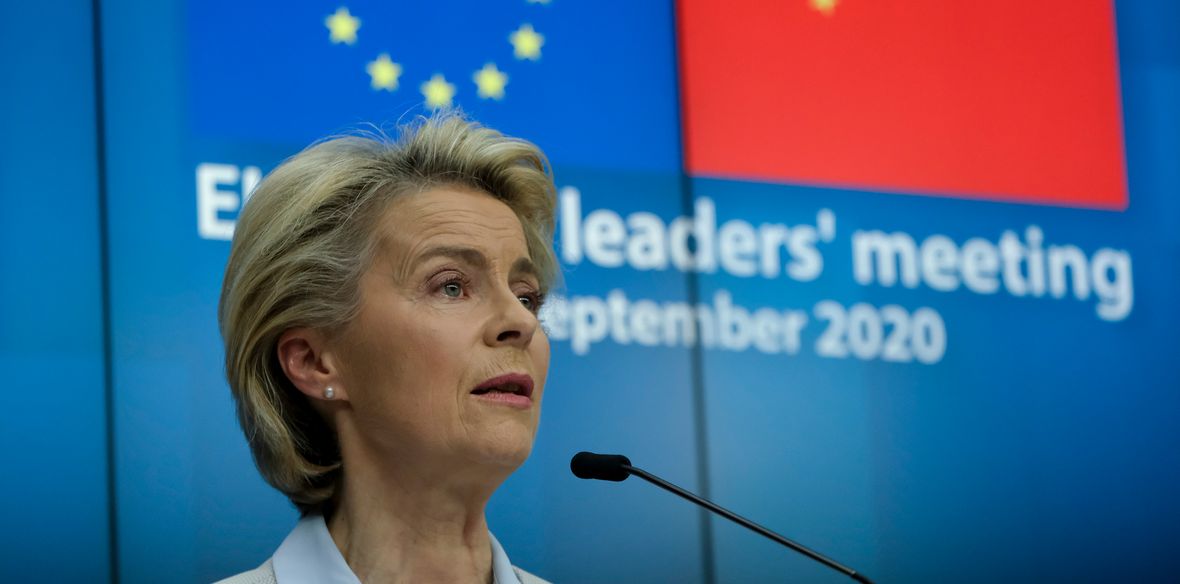The relationship between China and the European Union is historically volatile, marked by sudden tears and a subsequent rapprochement that did not allow the consolidation of an important bond for both of them. In March, as the controversy over the largest economic agreement between the two parties deepened, there was one of the fiercest tears in the past 30 years.
Similar to the example set by the United States, Canada and the United Kingdom, the European Union decided to extend sanctions against four Chinese individuals and one entity, accused of violating the human rights of the Uyghur minority, with specific reference to their interests and interests. In forced detention centers in Xinjiang. Interested parties are Zhu HailunAnd the Former secretary of Xinjiang Legal and Political Affairs Commission; Wang Junzheng, Chairman of the Xinjiang Political and Legal Affairs Committee and former Secretary of the Communist Party of China in Changchun; Wang Mingshan, member of the Standing Committee of the Communist Party of China in Xinjiang; Chen Mingo, director of the Xinjiang Public Security Bureau. However, the entity punished by the federation is the Public Security Bureau of the Xinjiang Production and Construction Corps. Previous EU sanctions date back to 1989, the year of the Tiananmen Square Massacre.
Beijing immediately requested clarification, stating that resorting to measures of this kind towards state-owned officials and companies could significantly worsen bilateral relations. In addition, Chen Gang, Chinese Deputy Foreign Minister, summoned Nicolas Chapuis and Caroline Wilson, European Union Ambassador and British Ambassador respectively, in quick succession.
The Chinese response was as expected, with the decision to punish ten individuals and four European institutional bodies, accused of endangering China’s sovereignty and interests and spreading false information to the press. Among the accused, we find five members of the European Parliament (Reinhard Boutiqueover, Michael Jahler, Raphael Glucksmann, Ilhan Kyushuyuk and Miriam Lexman), Dutch MP Sjord Wimer Shurdsma, Belgian MP Samuel Cogulati, Lithuanian MP Deauville Chakalen, and academics Adrian Zenz and Bjorn Girden. Affected institutions are the Political Committee of the European Council, the European Parliament’s Human Rights Subcommittee, the Mercator Institute for Chinese Studies (MERICS) in Berlin, and the Foundation for the Alliance of Democracies (AoD) in Copenhagen. The above-mentioned persons, as well as their families, will not be able to enter China, including Hong Kong and Macau, until further notice, and the entities and their subsidiaries will not be able to operate in the Chinese territory.
As a result, many observers believed that the Comprehensive Investment Agreement (CAI), the largest bilateral economic agreement between China and the European Union, would be quickly called into question, if not canceled. But that was definitely not Beijing’s intention, as confirmed by the words of Hua Chunying, a spokesman for the Foreign Ministry. Indeed, Hawa responded that undermining the economic agreements contained at Cairo International Airport would be unreasonable and unjustified. He then declared that the EU “cannot talk about cooperation on the one hand, and on the other hand impose sanctions that seriously harm Chinese interests. Rather, it should think carefully about its work and conclude the discussion, in order to contribute to the stable development of bilateral relations.”
China will try to separate the two, and does not intend to allow the human rights issue to undermine economic cooperation. The CAI is a very important agreement for Beijing, which is now the bloc’s premier trading partner, and has no intention of returning the scepter to the United States. Sanctions at present, despite their seriousness, mainly concern political representatives and the institutions associated with them, but an escalation that may include economic measures cannot be ruled out. In this sense, it is good to remember that the CAI has yet to pass the scrutiny of the Council and the European Parliament, as the opposition front gradually expanded after the Chinese retaliation.
The European People’s Party (EPP), the largest continental grouping, is deeply divided, and a large part of the party is calling for a review of the agreement. Manfred Weber, president of the European People’s Party, has publicly accused China of intimidating and attempting to silence members of the European Parliament who condemn human rights violations and abuses committed by the Communist Party against the Uyghurs. Meanwhile, the Progressive Alliance of Socialists and Democrats, Renewable Europe and the Green Party / Free Alliance for Europe have expressed their willingness to vote against ratification of the agreement, which should be discussed in the European Parliament next year. In more realistic terms, very dear to China, around 500 of the 705 MEPs will vote against the CAI, unless China backs down on recent sanctions, especially regarding MEPs accused of spreading false news.
The dispute caused a great deal of discontent in China, and was directed at the usual practice of boycott. Among the main targets of the campaign, which began the day after the announcement of European sanctions, the Swedish multinational H&M, a retail giant with more than 500 outlets in the country, is guilty of preventing the purchase of cotton produced in Xinjiang. The company’s products have disappeared from the major e-commerce platforms (Taobao and Pinduoduo), and pictures of completely abandoned stores and testimonies of some employees who decided to quit are starting to spread online. Then Nike, Adidas, Burberry, Converse and Calvin Klein were added to the list of boycotted companies, all guilty of the same sin.
Intense conflict in the situation signals a halt to negotiations and also requires a delicate moment of strategic reflection. The European Union finds itself in an extremely awkward position, potentially trapped between the United States and China, vacillating between moral reasons and economic necessity. Negotiations to ratify the International Atomic Energy Convention have just begun, but the Union will soon have to set its priorities and prepare for the consequences.
Photo: European Commission President Ursula von der Leyen (14 September 2020). Credits: Alexandros Michailidis / Shutterstock.com

Communicator. Reader. Hipster-friendly introvert. General zombie specialist. Tv trailblazer

